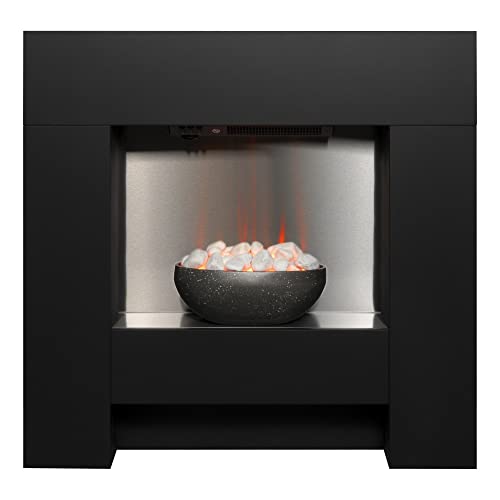The Best Fireplaces: A Comprehensive Guide for Homeowners
Fireplaces have actually long been a cherished function in homes, supplying both warmth and a welcoming atmosphere. They come in different styles, sizes, and fuel types, permitting homeowners to pick one that fits their individual visual and heating requirements. This post looks into the very best fireplaces, highlighting essential functions and factors to consider to assist you make an informed choice.
Types of Fireplaces
Understanding the different types of fireplaces is important in picking the best option for your home. Below are the most frequently used fireplaces:
Wood-Burning Fireplaces
- Advantages: Traditional appeal, natural atmosphere, and efficient heating.
- Drawbacks: Requires regular maintenance, ash disposal, and is subject to local regulations regarding emissions.
Gas Fireplaces
- Advantages: Convenient, clean-burning, and simple to operate.
- Disadvantages: Requires a gas line, can be more pricey to install at first.
Electric Fireplaces
- Benefits: Easy setup, low upkeep, and the most safe choice for homes with kids or pets.
- Disadvantages: Lack the authentic feel of wood or gas flames, may not heat large spaces successfully.
Pellet Stoves
- Benefits: Eco-friendly, effective, and offer a constant heat output.
- Drawbacks: Requires electrical energy to operate, and pellet supply can be restricted in some areas.
Ethanol Fireplaces
- Benefits: No chimney needed, portable, and eco-friendly.
- Downsides: Generally less efficient for heating.
A Comparison of Fireplace Types
| Type | Setup Cost | Running Cost | Heat Output | Upkeep | Ecological Impact |
|---|---|---|---|---|---|
| Wood-Burning | ₤ ₤ | ₤ | High | High | Moderate |
| Gas | ₤ ₤ ₤ | ₤ ₤ | Medium-High | Low | Moderate |
| Electric | ₤ | ₤ ₤ | Low | Really Low | Low |
| Pellet | ₤ ₤ | ₤ | Medium | Medium | Low |
| Ethanol | ₤ ₤ | ₤ ₤ ₤ | Low | Really Low | Extremely Low |
Top Considerations When Choosing a Fireplace
When you're in the marketplace for a new fireplace, keep the list below consider mind to ensure you select the best one for your home:
- Purpose and Functionality: What do you desire your fireplace to do? Is it for heating or visual appeals? This will guide your choice significantly.
- Space Availability: Measure the area where you desire to set up the fireplace. Guarantee the chosen type fits without frustrating the space.
- Fuel Source: Assess the accessibility and expense of numerous fuel sources in your area to avoid unexpected costs.
- Setup Complexity: Some fireplaces may need significant modifications to your existing home structure.
- Structure Codes and Regulations: Be conscious of local laws concerning ventilation, security, and emissions, as these can affect your fireplace option.
- Aesthetic Appeal: The design and style of a fireplace can work as a centerpiece or complement the existing design, so select one that boosts your home's total visual.
Advantages of a Fireplace
Including a fireplace to your home pays for numerous benefits:
- Enhanced Aesthetic Appeal: A fireplace can elevate the decor of any space, producing a cozy and welcoming atmosphere.
- Increased Home Value: A well-installed fireplace can add significant value to your home, making it attracting potential purchasers.
- Energy Efficiency: Modern fireplaces, especially gas and pellet stoves, can offer effective heating while lowering energy costs.
- Emergency Heat Source: In cases of power failures, a wood or gas fireplace can function as a reliable heat source.
- Celebration Space: Fireplaces often become the centerpiece for gatherings, promoting heat and comfort throughout family or buddies' get-togethers.
Often Asked Questions (FAQs)
Q: How much does it cost to install a fireplace?A: Installation costs can differ significantly based on the type of fireplace, structural requirements, and labor expenses. Standard electric fireplaces might cost around ₤ 300, while customized wood or gas fireplaces can range from ₤ 3,000 to upwards of ₤ 10,000. Q: Are electric fireplaces safe?A: Yes, electric
fireplaces are normally safe.
They do not give off carbon monoxide and have no open flames. They often consist of security features like automated shut-off mechanisms. Q: How typically ought to I have my chimney cleaned?A: If you utilize a wood-burning fireplace, it's advised to have your chimney cleaned up a minimum of when a year
to avoid creosote accumulation, which can result in chimney fires. Q: Can I install a gas fireplace myself?A: It's not recommended to set up a gas fireplace without expert assistance due to the complexities related to gas
lines, ventilation, and security policies. Q: What are the very best kinds of fuel for wood-burning fireplaces?A: The best fuel choices include well-seasoned woods like oak, maple, or hickory, as they burn hotter and cleaner compared to softwoods. Picking the very best fireplace for your home
involves thinking about many aspects, from visual appeals to function and security. Each type of fireplace has its unique advantages and possible drawbacks.
Comprehending these aspects, in addition to your individual heating needs and budget restraints, will assist you in making an informed decision. Ultimately, a fireplace can offer not only heat however also a rich atmosphere, transforming your home into an inviting sanctuary.

